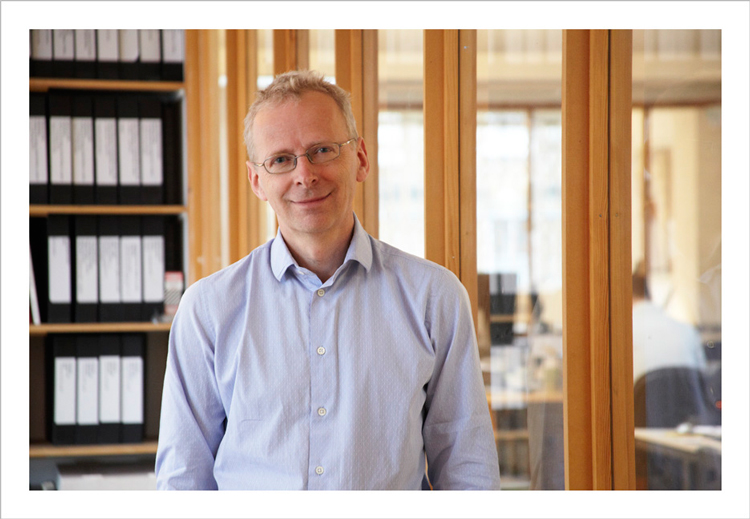James Lingwood arrives at the Artangel office in a fluorescent yellow cycling jacket, having just ridden across London from another meeting. He looks like an accountant with his neat hair and glasses, though he studied history and art history at Oxford. His world then was one of 19th-century French culture, with little involvement in contemporary art. His life has been a history of accidents. First there was the job at Plymouth Arts Centre where he organized small exhibitions, transferring his interest in 19th-century naturalism to photography, which was gaining artistic ground in the 1980s. Then in 1986 he was offered a job at the ICA (Institute of Contemporary Arts), where his friend, Michael Morris—whom he’s known since their time at the prestigious boarding school Oundle—was director of performing arts. Together they would go on to co-found Artangel.
In those days the London art scene was much smaller. “Most galleries were not commercial and those that were could be visited in a day. Culture was much more fleet of foot then, more agile,” Lingwood says. “We went to Documenta in 1987 and saw Gerhard Richter’s Baader-Meinh paintings, spoke to him on the phone and then straight after the German debut he sent the work over to the ICA with a small hand-drawn plan of how it should be hung.”
So what was the genesis of Artangel, I ask him. “We were struggling with the spatial limitations of the ICA. Site-specific work was taking an interesting turn. In 1987 we went to the Munster Sculpture Project that happens every 10 years. There we found artists working with the material fabric of the city. We wanted to be able to explore the potential for artists to work in new and uncertain ways. The investigation of the poetry of spaces is at the heart of Artangel. It’s not that the buildings or spaces we use have to be extraordinary, but they do need to resonate.”
There is a political agenda behind many of the works that Artangel commissions. Jeremy Deller’s The Battle of Orgreave (2001) was a re-enactment of the confrontation between police and picketing miners under the Thatcher government in 1984 at a British Steel coking plant in South Yorkshire, while Michael Landy’s anti-consumerist Breakdown documents the artist destroying all his worldly possessions in a former department store in London’s shopping Mecca of Oxford Street. One of Artangel’s most famous projects took place in 1993 when future Turner prize–winner Rachel Whiteread cast all of the rooms in a whole Victorian terraced house at its original location in East London, where all the other houses in the street had earlier been knocked down by the council in the course of redevelopment. It received opprobrium and praise in equal measure from London locals and the chattering classes. Others, such as Roger Hiorns’ covering of every surface of a condemned council flat in a rundown part of London with shimmering blue crystals of copper sulphate, are more poetic. A sense of “aliveness” is the essence of any Artangel project. “We want our projects to be part of a dynamic, changing culture,” says Lingwood.
Artangel has continued to commission complex, difficult projects, including Daniel Silver’s DIG, (reviewed in Artillery on November 5, 2013), Susan Hiller’s Witness, a sound piece set in a disused west London chapel, created from statements recorded around the world by those who claim to have witnessed UFOs.
One of the projects closest to Lingwood’s heart is the Mobile Homestead videos, part of Mike Kelley’s last major project before the artist’s suicide three years ago, an Artangel public commission for his native city of Detroit, based on a life-sized replica of his family’s suburban home. The videos document the homestead’s journey from downtown Detroit to the Kelleys’ original home in Westland and back again, detailing the urban decay and socio-economic disparities along the way, until its final arrival at the Museum of Contemporary Art Detroit (MOCAD).
As PJ Harvey and her band finish the final days of recording her next album as an exhibition at the historic Somerset House, I ask Lingwood about the future. “Well I can’t really say because it’s unimaginable. We don’t always know the destination.” We can be sure, though, that one thing we can always expect from Artangel is the unexpected.


